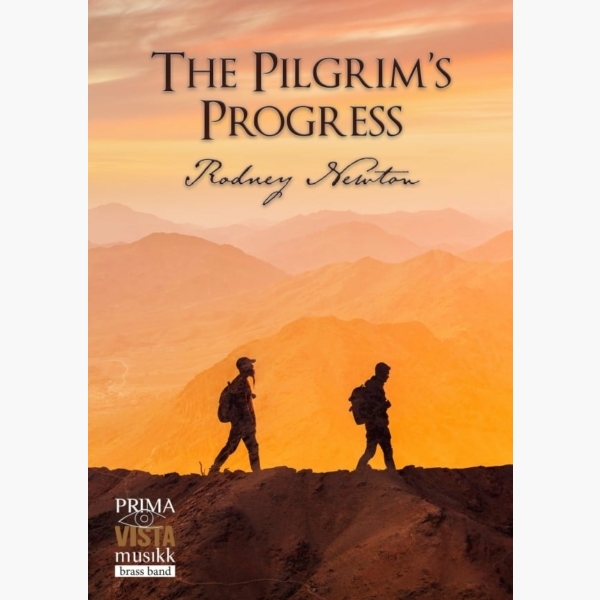Results
-
£44.95
MUSIC OF THANKSGIVING (Brass Band Set) - Kenneth Downie
This is an extensive work consisting of a theme, five variations and a finale. The theme is the hymn tune 'Whitechapel' whose former title 'Death is coming' did little to encourage its use! A wide range of moods are covered, from the delicate and tender to the robust and jubilant. The music was originally written for the London Citadel Band (Ontario, Canada).
Estimated dispatch 7-14 working days
-
 £79.99
£79.99Strathcarron - Philip Sparke
Strathcarron is a movement from Philip Sparke's Hymn of the Highlands, in which each movement reflects a different location in the beautiful Scottish highlands. Stratcarron, named after a village at the head of Loch Carron, near the Isle of Skye, takes the form of a sword dance which alternates between fast and slow tempi.
Estimated dispatch 5-14 working days
-
£44.95
Music Of Thanksgiving (Brass Band - Score and Parts) - Downie, Kenneth
This is an extensive work consisting of a theme, five variations and a finale. The theme is the hymn tune 'Whitechapel' whose former title 'Death is coming' did little to encourage its use! A wide range of moods are covered, from the delicate and tender to the robust and jubilant. The music was originally written for the London Citadel Band (Ontario, Canada).
Estimated dispatch 7-14 working days
-
£22.50
Music Of Thanksgiving (Brass Band - Score only) - Downie, Kenneth
This is an extensive work consisting of a theme, five variations and a finale. The theme is the hymn tune 'Whitechapel' whose former title 'Death is coming' did little to encourage its use! A wide range of moods are covered, from the delicate and tender to the robust and jubilant. The music was originally written for the London Citadel Band (Ontario, Canada).
Estimated dispatch 7-14 working days
-
 £64.95
£64.95The Pilgrim's Progress - Rodney Newton
Drawing inspiration from John Bunyan's Christian allegory, 'The Pilgrim's Progress' and Eric Ball's setting of Bunyan's 'Pilgrim's Hymn', Rodney Newton has expertly crafted a set of variations, each outlining a chapter in the Pilgrim's journey to the Celestial City. The...
Estimated dispatch 5-7 working days
-
 £49.95
£49.95The Power and the Glory - Paul Lovatt-Cooper
The Power and the Glory takes its inspiration from two songs of worship: the traditional hymn 'Miles Lane' and the contemporary worship song 'At Your Mercy Seat'.
Estimated dispatch 5-7 working days
-
£44.95
ETERNAL PRESENCE, The (Brass Band Set) - Eric Ball
The recurrent theme is the hymn 'Still, still with Thee' with which the composer has blended his own consideration of words from Psalm 139 (verses 7 - 11). In contrast, there are three opposing movements subtitled 'The Imprisoned Spirit', 'The Heart's Grief' and 'Tribulation' while the final section reaffirms 'The Eternal Presence'.
Estimated dispatch 7-14 working days
-
£44.95
The Eternal Presence (Brass Band - Score and Parts) - Ball, Eric
The recurrent theme is the hymn 'Still, still with Thee' with which the composer has blended his own consideration of words from Psalm 139 (verses 7 - 11). In contrast, there are three opposing movements subtitled 'The Imprisoned Spirit', 'The Heart's Grief' and 'Tribulation' while the final section reaffirms 'The Eternal Presence'.
Estimated dispatch 7-14 working days
-
£22.50
The Eternal Presence (Brass Band - Score only) - Ball, Eric
The recurrent theme is the hymn 'Still, still with Thee' with which the composer has blended his own consideration of words from Psalm 139 (verses 7 - 11). In contrast, there are three opposing movements subtitled 'The Imprisoned Spirit', 'The Heart's Grief' and 'Tribulation' while the final section reaffirms 'The Eternal Presence'.
Estimated dispatch 7-14 working days
-
£33.00
Memoirs of a Drum Major - Barry, D
A march fantasy. The piece is dedicated toFred Edge who was Drum Major with theWalkden Band and loved hearing bands onthe march. This fun piece includes smallquotes from marches he would have heardon the street and also includes his favouritehymn, Blaenwern. There is also a run-inwith another band marching in theopposite direction.3rd section +
In Stock: Estimated dispatch 1-3 working days
